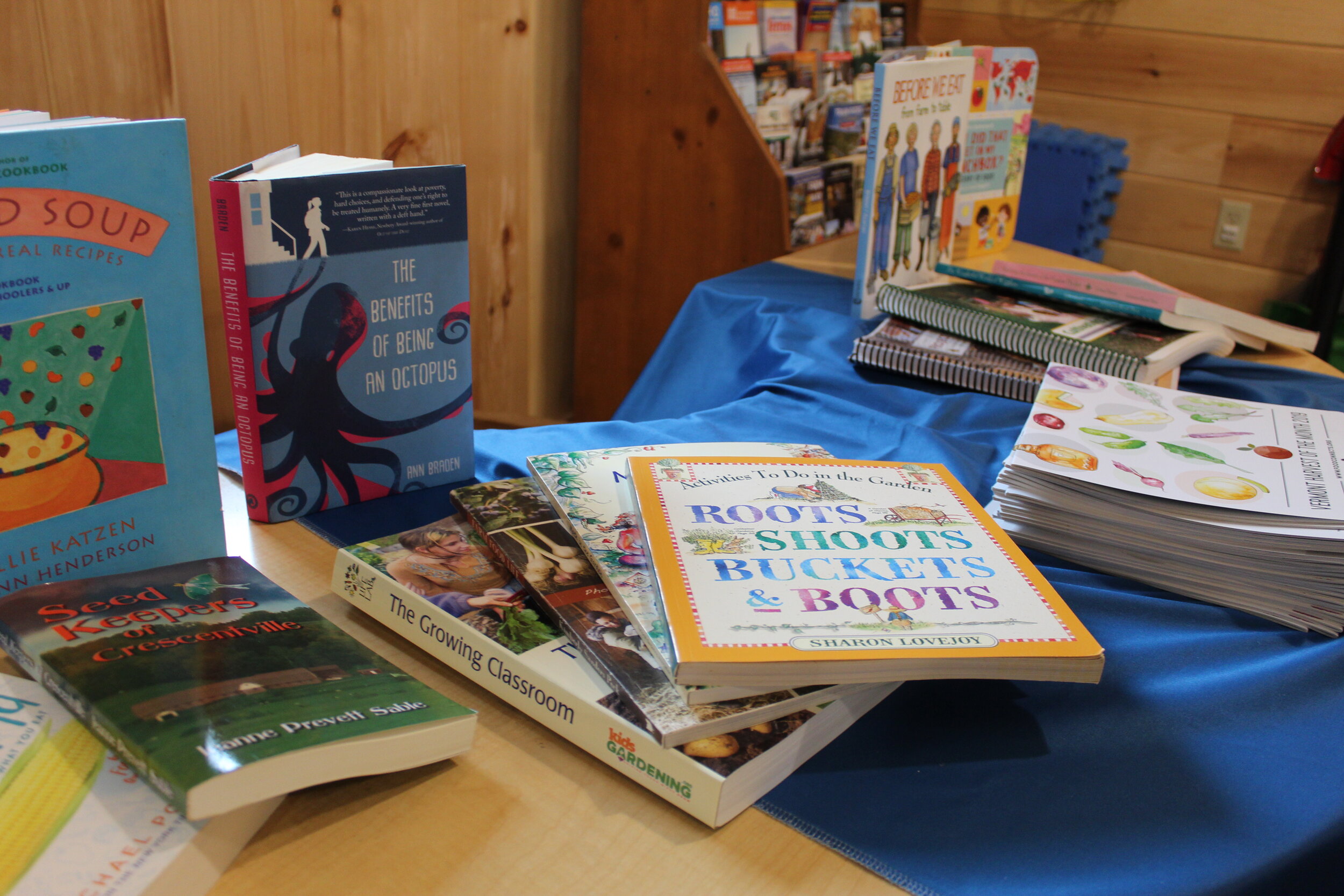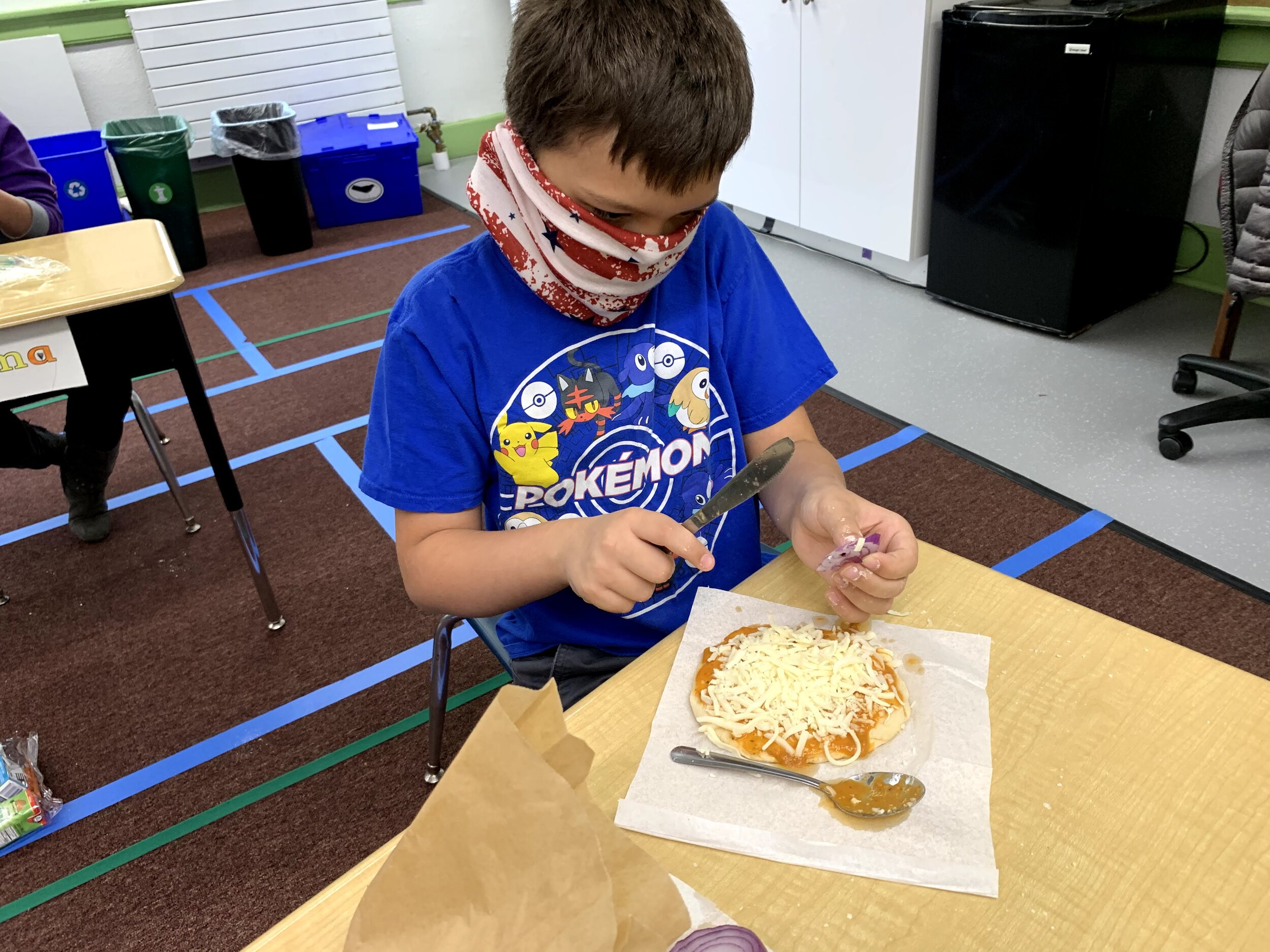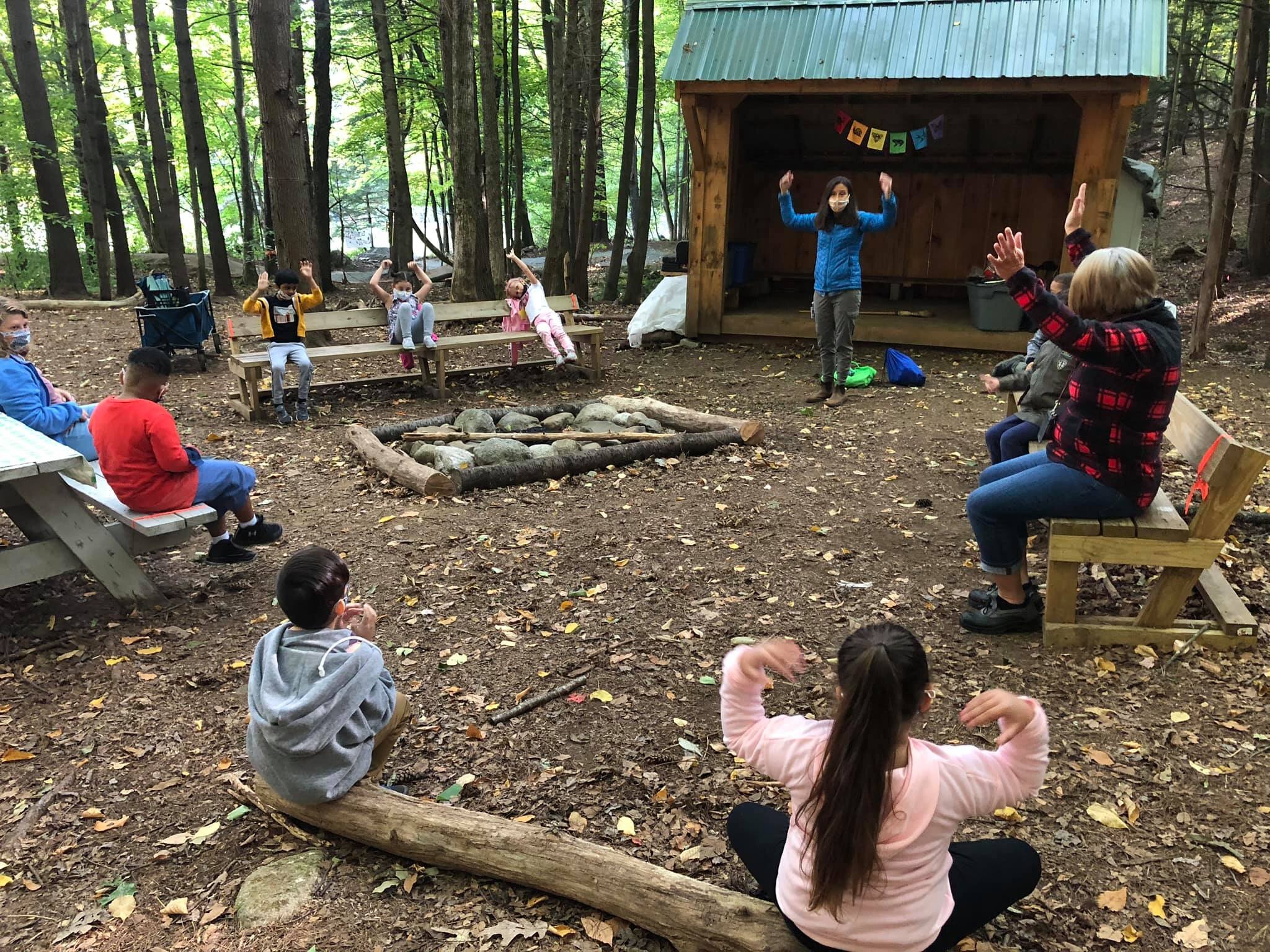Looking for ideas to bring outdoor learning up a notch at your school this fall? Or creative ways to engage with students around farm, food, and nutrition education during this school year?
As part of the COVID-19 mitigation plan, school staff is encouraged to incorporate the outdoors as much as is reasonable in their instruction or daily routines this fall. Our Farm to School Resource Hub is a great place to look for ideas and support for outdoor learning, school gardens, and cooking with students during COVID-19.
Here are a few of our favorites:
Cultivating Joy and Wonder: Free downloadable resource book with over 75 classroom food, farm, and nutrition activities. This book is a great one-stop resource for elementary school teachers interested in incorporating more Farm to School education into their curriculum.
Teaching Outside 101: A 15-page guide from the Bonnyvale Environmental Education Center (BEEC) all about how to get your classroom outside. This guide covers the nitty-gritty logistics of outdoor education and idea starters for outdoor lessons in each academic subject.
Cooking with Students: Guidelines developed by Food Connects in partnership with the VT FTS Network to help teachers cook with kids while staying COVID-19 safe.
We also want to highlight Discover Dairy’s Adopt a Cow program. This free program provides an exciting, year-long experience for the classroom where students get an inside look at dairy farming while paired with a calf from a Vermont dairy farm. Classrooms receive regular progress updates, cow photos, live chats from the farm, activity sheets for students, suggested lessons that follow Common CORE standards, and opportunities to write letters to the calf. Register for this school year by September 15.
We are wishing you all a healthy start to the 2021-2022 school year!









